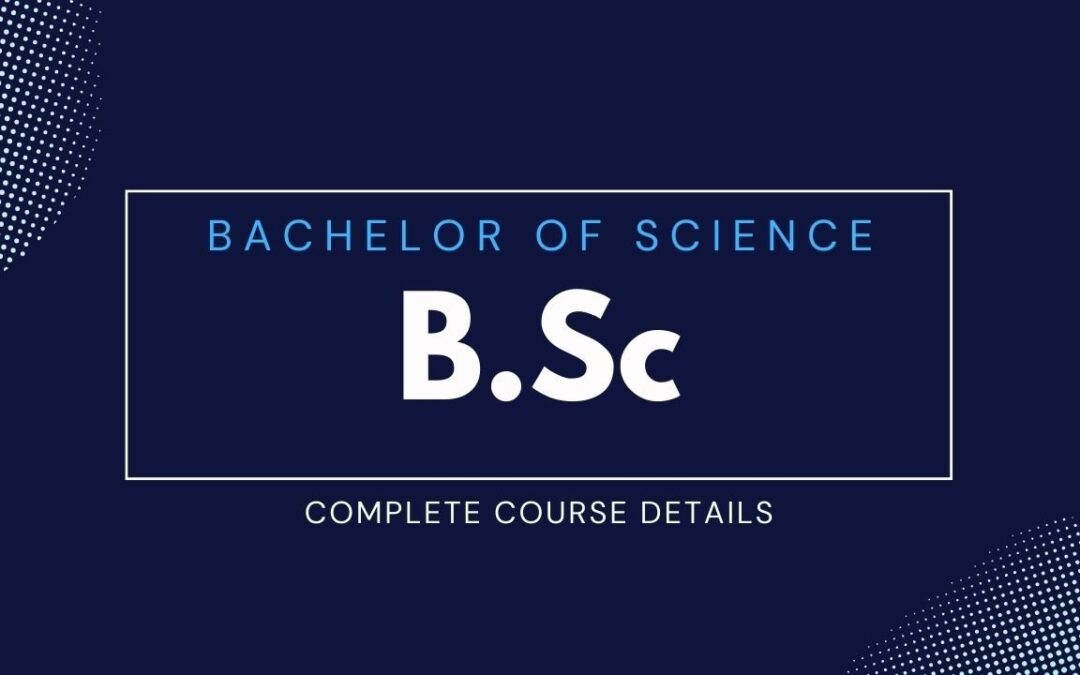Bachelor of Science Program
Earning a Bachelor of Science degree is an exciting journey, but it comes with its challenges. This academic path, often referred to by its full form of BSC, demands more than attending lectures and completing assignments. It requires determination, curiosity, and a willingness to engage deeply with your chosen field. Whether your focus is biology, computer science, or physics, success in a BSC program depends on your ability to adapt and excel in a demanding yet rewarding environment.
Before you start, it’s essential to understand what a BSC program truly entails. The full form of BSC is Bachelor of Science, but it’s not just a degree; it’s a rigorous exploration of scientific theories and their real-world applications. Each specialization, whether chemistry or mathematics, has unique demands. For example, pursuing a BSC in Computer Science involves long hours of coding and debugging, while a focus on physics might require solving intricate equations that challenge your problem-solving skills. It’s a path for those who love unraveling the mysteries of the natural and technological world.
A strong foundation in science is critical. The subjects you studied in high school—math, physics, chemistry, or biology—serve as the building blocks for advanced concepts. Without these basics, college-level topics like organic chemistry or calculus might feel overwhelming. Think of it like building a house: without a solid foundation, the structure becomes unstable. Before starting your BSC, revisiting and strengthening these fundamental concepts can make a big difference in your confidence and performance.
Time management is another cornerstone of success in a BSC program. College life is often a juggling act—balancing lab work, lectures, projects, and exams. Imagine this scenario: you have a lab report due tomorrow, a quiz in two days, and three chapters to read for the next class. It’s a familiar reality for many students, but the key lies in how you handle it. A simple to-do list can work wonders. Break large tasks into smaller, manageable steps. For instance, instead of writing an entire lab report in one night, start by drafting the introduction today and completing the analysis tomorrow. Prioritizing tasks based on deadlines and complexity helps prevent last-minute stress.
One of the most significant challenges students face in a Bachelor of Science program is staying motivated. The workload can feel overwhelming at times, and it’s easy to lose sight of why you started. To keep your motivation alive, connect your studies to your future goals. For example, if you’re pursuing a BSC in Biology, remind yourself how your coursework contributes to your dream of working in genetics or healthcare. Setting small, achievable goals along the way, such as acing a particular exam or mastering a difficult concept, can also help maintain focus and enthusiasm.
Practical learning is another vital aspect of a BSC program. Unlike degrees that rely heavily on theoretical knowledge, a Bachelor of Science emphasizes hands-on experience. You’ll spend a lot of time in labs, conducting experiments, and analyzing results. These practical sessions are more than just coursework; they’re a chance to develop problem-solving skills and apply what you’ve learned in the classroom to real-world scenarios. For example, a BSC in Chemistry student might experiment with different chemical reactions to understand their properties better. Treat these lab sessions seriously—they’re not just about grades but about preparing for careers in research, healthcare, or technology.
Collaboration and communication are equally important in succeeding in a BSC program. Science is rarely a solo endeavor; breakthroughs often result from teamwork and shared ideas. In college, this might mean working on group projects, discussing concepts with classmates, or seeking help from professors during office hours. Building these connections not only makes challenging coursework easier to tackle but also helps you develop interpersonal skills that are invaluable in any career. For instance, working with a team in a research project can teach you how to share responsibilities, respect differing viewpoints, and present findings effectively.
Adapting to new challenges is another hallmark of a successful BSC student. Science is constantly evolving, and staying updated with the latest advancements is crucial. Read research articles, attend workshops, and engage with the scientific community to broaden your knowledge. Embracing technology is equally important. Fields like computer science, physics, and even biology now rely heavily on tools like coding, data analysis software, and machine learning. Familiarity with these technologies can set you apart and prepare you for the future job market.
Lastly, never underestimate the power of a balanced approach to life as a BSC student. While academics are the focus, personal well-being is just as important. Sleep, exercise, and time for hobbies can recharge your mind and prevent burnout. Remember, your brain works best when it’s rested and happy. Taking short breaks during long study sessions, practicing mindfulness, or engaging in a favorite activity can help you stay sharp and productive.
In conclusion, excelling in a Bachelor of Science program requires a mix of discipline, curiosity, and resilience. The full form of BSC, Bachelor of Science, represents not just an academic pursuit but a commitment to exploring and understanding the world through a scientific lens. By mastering time management, staying motivated, embracing collaboration, and adapting to challenges, you can thrive in this exciting and demanding program. Success in a BSC isn’t just about earning a degree—it’s about building skills and experiences that shape your future.

Trackbacks/Pingbacks